July 26, 2019
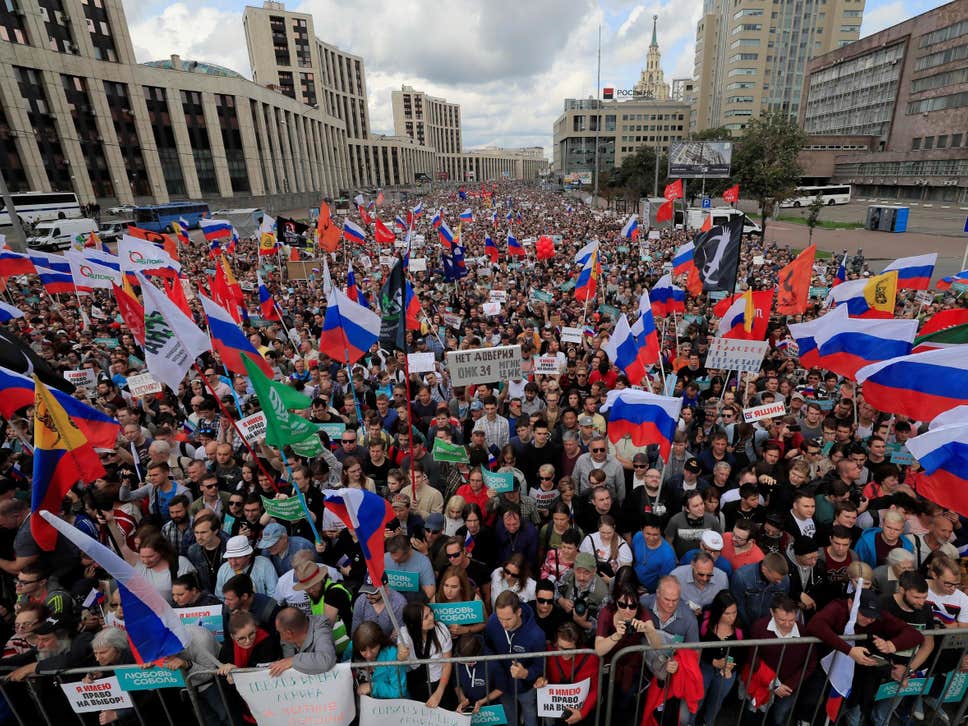
Protests in Moscow (REUTERS)

The recent brain scans of Cuba-based American diplomats insinuate some sort of brain damage; in late 2016, multiple staff members at the U.S. embassy in Cuba reported concussion-like symptoms, leading the United States to expel two Cuban diplomats. Dubbed “Havana Syndrome”, the mystery illness led to accusations of sonic attacks by Cuba. While no evidence of sonically capable technology has been found, recent images of the diplomats’ brains shows various abnormalities; although the scans appear to prove something happened, findings are inconclusive. Cuba has denied any possibility of a sonic attack and pointed out that U.S. diplomats have experienced the described symptoms in other locations.

A former member of the Gabonese parliament, Bertrand Zibi Abeghe, was sentenced to six years in prison for his role in instigating post-electoral violence. The Libreville Criminal Court sentenced Abeghe on charges of “violence and assault” and “illegal possession of a firearm.” His arrest stems from the 2016 elections in which he supported Jean Ping in the disputed election against longtime Gabonese President Ali Bongo, who first came to power in 2009.

A group of students submitted a request to stage a protest for National Student Day, despite the ban on protests that was implemented by the Nicaraguan government in September of 2018. The objective of the protest, the students say, is to reaffirm the demand for university autonomy. Despite direct warning from Daniel Ortega, the president of Nicaragua, the students plan to hold the protest on July 25. A government spokesperson called the students “delinquents,” further causing tension leading up to the protest.

This Monday, North Korea publicized its claim that 99.98% of eligible voters cast their ballot in city, district and provincial elections. The electoral ballot has only one candidate on it, approved by the state, and the voters can either tick ‘Yes’ or ‘No’ under the name. The sham elections are ostensibly held periodically to perform a theatrical vision of unity between people and the state in North Korea.
On Thursday, North Korea launched missiles into the Sea of Japan during a joint military drill between the US and South Korea, raising military tensions just less than a month after US President Trump visited North Korea. South Korean authorities have declared that the launches are a military threat, raising tensions in the region further. North Korea declared that it could cancel its moratorium on nuclear testing over the drills.

Myanmar’s conflict-ridden Rakhine state is in the midst of an information blackout, as an internet shutdown enters its fifth week. Human rights groups in Myanmar say the move by the government is detrimental to the delivery of humanitarian aid to thousands of civilians displaced by armed conflict, as well as a way to provide cover for abuses committed by the government. The government initially ordered the shutdown due to fighting between government forces and the Arakan Army, an ethnic Rakhine armed group fighting for greater autonomy in the Rakhine state. The internet shutdown has, according to the U.S. special rapporteur on human rights in Myanmar, prevented reports of army atrocities from reaching outside news sources. The shutdown has also hampered critical information from reaching the state, such as flood warnings during the country’s current monsoon season.

This week, former special counsel Robert Mueller testified before the House Judiciary Committee and the Permanent Subcommittee on Intelligence. Mueller’s investigation into the 2016 presidential election culminated in the “Mueller Report” which explored allegations of Trump-Russia relations, election meddling and obstruction of justice; the Mueller hearing sought to clarify the conclusions drawn in the report. Both Republicans and Democrats were hoping for significant statements and findings to come out of the hearing; Republicans aimed to discredit the findings of the report and excuse Trump’s actions, while Democrats attempted to demonize the actions of President Trump and his indicted associates further than was expressed in the report. Overall, the hearing failed to specifically serve the Democratic or Republican agendas and was instead dubbed by the media as a “disaster” with no consequential conclusions.

Human Rights Watch has called on the Cambodian authorities to release two ex-Radio Free Asia journalists who are about to go on trial for espionage charges. Uon Chhin and Yeang Sothearin were arrested in 2017 and charged with supplying a foreign state with information prejudicial to Cambodia’s national defense under article 445 of the criminal code, an offense punishable by a prison term of 7 to 15 years. The arrests came after Radio Free Asia shut down its Cambodian operation after accusing Cambodian government officials of harassing their reporters. The trial is set to begin on July 26th.

The former president of the Maldives, Abdulla Yameen, pled not guilty to charges of money laundering on Sunday, in the first hearing of a nationally televised criminal court case accusing Yameen of profiting off government funds in exchange for exclusive hotel developments in the tropical island. During his tenure as president, Yameen drew the Indian Ocean archipelago-country closer to China, in a geo-political tug-of-war with India. In doing so, he became closely associated with private companies, and is accused of handing development deals to executives, and receiving over one million dollars of government money through a private company, SOF Private Ltd, for his favors. The corruption scandal, originally uncovered by an internal audit, has also implicated several other leading politicians and businessmen, all of whom have denied any wrongdoing. Yameen, unexpectedly lost an election last year, and was subsequently arrested in February. He has repeatedly denied the allegations against him.

A Zimbabwe court has ruled that the Zimbabwe Broadcasting Corporation (ZBC) and Zimbabwe Newspapers (1980) through their titles Herald, Chronicle among others were found to have failed to live up to their constitutional obligations. The judge found that both institutions were guilty of lacking impartiality in coverage and failure to accommodate dissenting views during the 2018 general elections. The ruling is a blow to large media outlets in the country and is a victory for many activists who have been fighting for greater freedom in Zimbabwe.
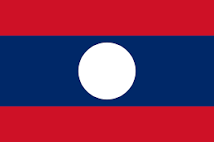
This week, the Lao government issued a decree on a new moral and ethical code for Laotian civil servants. The code stipulates fair treatment of citizens and a more stringent attitude against corruption — not taking bribes or abusing their position. This decree is part of Laos’ ruling party’s effort to combat widespread corruption in the country, mirroring the campaigns in other communist states in the region, China and Vietnam. However, the campaigns in all three countries have served more as purges of the civil service and the parties rather than an establishment of proper institutional oversight.

The head of the UN peacekeeping force in the DRC is reporting this week that ethnic violence in northeastern part of the country is preventing refugees from returning to their homes. In the Ituri Province, violence between Lendu farmers and Hema herders resulted in more than 350,000 fleeing from their homes. The deteriorating security situation in the region is hindering the return process that has been taking place since 2018.
The World Bank announced on Wednesday that it was deploying an additional $300 million in crisis aid to the DRC to help stop the spread of ebola, which has plunged the country into a health crisis for the past year. Last week, the World Health Organization declared the most recent outbreak a Public Health Emergency of International Concern. Since last August, there have been over 2,500 cases of Ebola in the DRC, with more than 1,700 dying from the illness.

A major blackout paralyzed the city of Caracas this week in a continuation of power shortages that have been plaguing Venezuelans for months. Opposition leader Juan Guaidó used the most recent blackout to bring attention to the incompetence of the current administration; President Nicolás Maduro claimed that the blackout was a result of an attack by foriegn agents- an accusation he has made during past power shortages. On July 15th the Lima Group, an organization that includes Canada and a dozen Latin American countries, expressed their support for Guaidó and urged Maduró to allow free democratic elections. Despite the rising tension in the region and pressure from the international community, Maduró has expressed no plans to cede power.

The Malaysian Senate has extended the franchise to thousands of people by voting to lower the voting age from 21 to 18. The bill also allows for automatic voter registration and the lowering of the minimum age for elected representatives to 18.
After a standoff with China last week, Malaysia restarted cooperation with China on a massive infrastructure project in northern Malaysia as part of the Belt and Road Initiative. Malaysia managed to reduce the price of the project by a third.
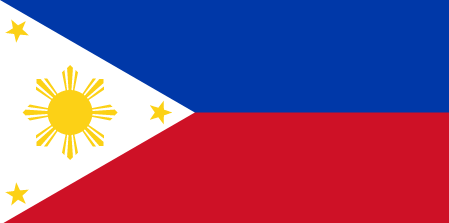
A cyber-libel trial against the editor of the news site Rappler, an influential Philippines online news site critical of President Rodrigo Duterte, started on Tuesday in a case widely seen as Duterte seeking to intimidate journalists and suppress critics of his widespread abuse and human rights violations. Maria Ressa, the journalist in-question, describes her overnight arrest in 2012 as “baseless and preposterous,” adding that how the court rules “will have an impact on all Filipinos who post on Facebook – and of course, the quality of journalism in the digital age in the Philippines.” Moreover, the cyberlaw she is accused of breaking, was enacted four months after the 2012 incident in which Rappler alleged ties between a Philippine businessman, Wilfredo D Keng, and a high court judge.
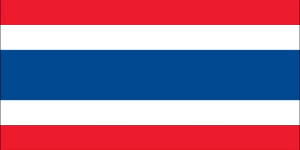
The Human Rights Watch has published a piece that criticizes the Thai government of disregarding human rights as the Prime Minister Gen. Prayuth Chan-ocha’s second term begins: “The new Thai government’s policy statement fails to provide a pathway for restoring respect for human rights after five years of military rule,” Human Rights Watch said today. According the HRW, Prayuth submitted a report that is supposed to outline his agenda while in office. However, the 40-page report fails to outline any plan to address human rights issues in the country, which have been an area of concern for years now.

On Monday, July 22nd, Vietnam launched Gapo, a home-grown social network, in an attempt to tighten the regime’s grip on the internet and social media, while luring users away from Facebook, which is very popular in the country. Vietnam’s increasing control over the internet and social media is troubling, as social media sites have been the last refuge for activists and dissidents, with independent media quashed and blogs being shut down by the government routinely.
In the South China Sea, the standoff between China and Vietnam has intensified. Vietnam has deployed vessels near a Chinese oil block in the South China Sea. The move has been criticized by other countries in the region, with Philippines warning Vietnam that it risks armed hostilities with China.

Iran claimed this week that it has arrested 17 Iranian nationals allegedly recruited by the CIA to spy on the country’s nuclear and military sites. Iran says that some of those arrested have already been sentenced to death, although it is not clear how many death sentences were handed out. Donald Trump has rejected the claim, tweeting that “The Report of Iran capturing CIA spies is totally false.”
President Hassan Rouhani of Iran announced on Wednesday that Iran might release a British tanker the country seized last week in exchange for the return of an Iranian ship seized by the British military off the coast of Gibraltar. The British seized the Iranian tanker off the coast of Gibraltar on July 4 on suspicion of violating a European Union embargo on the sale of oil to Syria. Iran in return seized the British ship in the strategically important Strait of Hormuz, claiming that it had collided with a fishing boat and violated international law. The offer is seen as a potential gesture toward reducing the escalating tensions between Iran and the West.

The second part of the power-sharing deal is yet to be signed by the opposition group, who are seeking a postponement. The creation of a constitutional document is reportedly causing problems between the two sides, as is the matter of whether military leaders will be granted immunity from prosecution for the killing of civilians. The Revolutionary Front, a sect of the pro-democracy movement, has rejected the power-sharing deal, signifying the potential of a divide in the opposition party. As time goes on without a solidified deal, the Sudanese people have taken to the streets to protest the massacre of civilians by the Transitional Military Council.
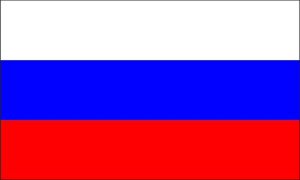
On Saturday in Moscow, an estimated ten thousand protesters took to the streets after election officials barred around 30 opposition-leaning candidates from running for the 45-seat Moscow-city legislature on the grounds they failed to garner enough signatures to qualify. The barred leaders assert they did gather the required signature count but were disqualified by election officials in the pocket of authoritarian President Vladmir Putin. Leading opposition leader and figurehead, Alexei Navalny, was present, hobnobbing and shaking protesters’ hands, and talking to the candidates who were not registered. While Russian opposition leaders tend to be factitious, demands for free and fair elections is one of the rare issues that unite the usually divided opposition.
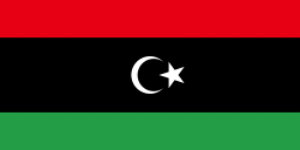
Two refugee ships going from Libya to Europe capsized by the coast of Libya, resulting in 150 deaths. Over 130 people were rescued on the coast and returned to Libya. This tragedy prompted statements from UNHCR and other human rights organizations about the necessity of changing the process of crossing the Mediterranean and minimizing unnecessary tragedies.
The head of Libya’s High Council of State, Khalid al-Mishri, declared that the UN-backed Government of National Accord will not negotiate with parties that utilize violence to achieve their goals. This statement continues to rule out the possibility of the GNA negotiating with militias run by Haftar, but al-Mishri discussed a possibility of returning to the political process run by the UN.

Despite beginning just one year ago, peace talks between Ethiopia and Eritrea have stalled, leaving many emotional and confused. Initial peace talks aimed at normalizing relations led to quickly re-opened embassies, meetings and resumed flight schedules across the region. However, many goals have been unmet including trade deals providing Ethiopia with access to Eritrea’s ports. The border which was opened just one year ago, has now been closed, inconveniencing many and serving as a symbol of failure. While the two nations continue diplomatic talks, the media and the public have been shut out from the details, unaware of what is preventing forward progress. Many are pointing the finger at Eritrean President Isaias Afwerki, believing his desire to hold onto power is limiting partnerships with the Ethiopian government.

Tensions due to protests in Hong Kong have escalated. Activists and lawmakers are accusing Hong Kong police of merely standing by after forty-five people were beaten with sticks and hospitalized during this week’s protests. Video footage shows a group of masked men storming a transit station in Yuen Long and beating dozens of passengers including a woman holding a child and a pregnant woman. Ray Chan, a pro-democracy lawmaker tweeted “Hong Kong has one of the world’s highest cop to population ratio. Where were @hkpoliceforce?” Pro-Beijing lawmaker Junius Ho has been accused of hiring the men to attack the protestors. The Hong Kong police have since arrested 5 individuals believed to be part of the attack. Wednesday, China said it was willing to use force to contain the protests, “The behavior of some radical protesters challenges the central government’s authority, touching on the bottom line principle of ‘one country, two systems,’” said the chief spokesman for the Ministry of National Defense, Senior Col. Wu Qian. “That absolutely cannot be tolerated.”
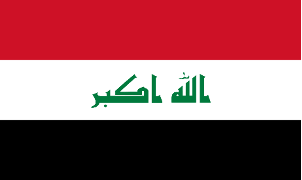
An Islamic State sleeper cell was arrested in Nineveh, Iraq on Monday. The group, called “Baghdadi’s Men” included a senior aide to IS leader Abu Bakr al-Baghdadi. Members of the sleeper cell confessed to terrorist acts in Syria and Egypt against foreign embassies and churches and admitted to authorities they had plotted to commit similar terrorist attacks against Iraqi civilians in the Nineveh province.
Puerto Rico: After days of protests that filled the streets of San Juan, the governor of Puerto Rico, Ricardo Rosselló announced he will be stepping down on August 2nd. The protests were sparked after group messages were leaked in which Rosselló used homophobic and misogynistic language, as well as made fun of the victims of Hurricane Maria. Rosselló was also found out to manipulate public polls to boost his own image. However, in an atmosphere of broad political distrust, Rosselló’s successor did not evoke much joy in the protesters. When Wanda Vázquez, the Justice Secretary, was announced as Rosselló’s replacement, the protesters erupted in boos, saying they will not stop protesting until the system is shaken up.
Ukraine: After winning by a landslide in April, President Volodumr Zelensky, a former comedian turned politician, called an early parliamentary snap election seeking to consolidate parliamentary power. With half the votes counted on Monday, Zelenskiy’s party Servant Of The People (SOTP) was on course to win an absolute majority in the Rada, Ukraine’s parliament, with win 42% of the vote, with a strong showing in single-mandate districts. If successful, it would be the first time in Ukraine’s post-Soviet history that a single party commands an outright majority. Four other parties are expected to reach the 5% threshold to enter parliament with the pro-Russian Opposition Party coming in second with 13%. The party of former president Petro Poroshenko, who was trounced by Zelenskiy in the presidential elections, came third, while parties led by veteran politician Yulia Tymoshenko and the country’s best-known rock star, Svyatoslav Vakarchuk, were also set to gain seats with around 6%.
UK: Boris Johnson, after winning the race for leader of the Conservative Party in a 2:1 victory, has taken office as Prime Minister of the United Kingdom. On Wednesday Johnson formed his cabinet, packing it with hardline Brexiteers like Dominic Raab and Jacob Rees-Mogg in hopes of delivering his DUDE promise: Deliver Brexit, Unite Britain, Defeat Corbyn, and Energize England. Prime Minister Johnson has committed to deliver Brexit by October 31st, deal or no-deal, which, according to experts, would send shockwaves to the country’s economy and its political relationship to Brussels.